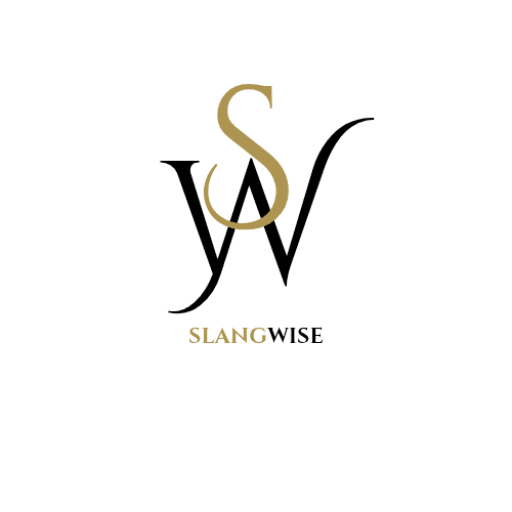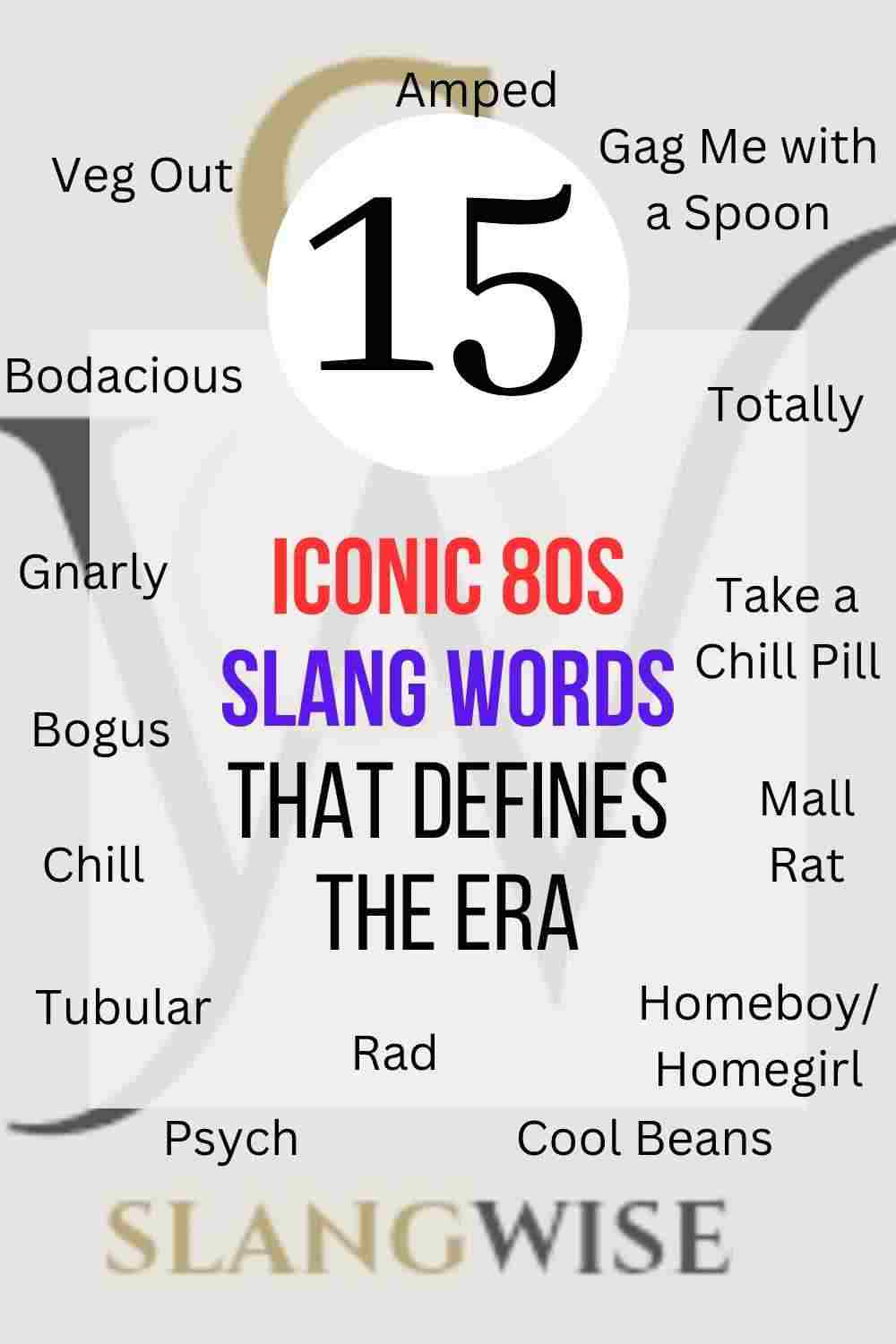The 1980s marked a pivotal era for popular culture, as the rise of MTV, skateboarding subculture, and blockbuster cinema fueled a linguistic revolution.
Alright, let’s set the scene. Imagine really big hair, bright neon colors everywhere, the sound of those classic electronic keyboards pumping out music, and someone maybe trying to solve a Rubik’s Cube.
The 1980s? They weren’t just ten years that passed by. They had a whole unique feeling – a real vibe.And a massive part of that special feeling? The way people talked! The slang back then was seriously cool and totally unique.
Maybe you actually wore those big, baggy parachute pants back in the day. Or maybe you just love watching shows like Stranger Things that bring the 80s back to life.
Either way, these old-school words are like little pieces of pure nostalgia. They instantly bring back memories and feelings from that awesome time.
So, get ready for a quick trip back! We’re going to revisit 15 Iconic 80s Slang Words You Should Know.
Table of Contents
In a Nutshell
- The 15 Popular 80s Slang Words are: Rad, Tubular, Bodacious, Gnarly, Bogus, Psych, Cool Beans, Chill, Homeboy/Homegirl, Mall rat, Take a Chill Pill, Totally, Gag Me with a Spoon, Amped, Veg Out.
- The 1980s slang lexicon emerged from diverse cultural influences, MTV, skateboarding, and blockbuster films, and reflected social identities, attitudes, and subcultural trends of the decade.
- Each iconic term carried specific connotations and contextual usage that resonated across music, sports, and film, illustrating how language both shaped and was shaped by popular movements.
- Many 80s expressions have endured or resurfaced in contemporary media, demonstrating the decade’s lasting impact on vernacular and the cyclical nature of slang evolution.
SlangWise Tip
Deploy 80s slang sparingly in modern contexts to add retro flair without sounding contrived.
15 Popular 1980s Slang Words and meaning
Witten below are the most popular 80s slangs.
1. Rad
Rad is short for “radical,” meaning extremely cool or impressive.
It was popularized by West Coast surf and skate scenes, then amplified by MTV’s music videos.
In short: Rad = exceptionally cool or impressive.
Example:
- “That new arcade game is totally rad: let’s grab quarters.”
2. Tubular
Tubular is an 80s slang that describes something outstanding or excellent, literally “tube-like,” a nod to surf culture.
Origin: It emerged from Southern California surfers and skateboarders; gained mainstream traction via movies and music.
In short: Tubular = extraordinary or awesome.
Example:
- “Did you see that skateboard trick? Tubular repairs are expensive, but totally worth it.”
3. Bodacious
Bodacious is anot popular slang of the 80s that means being bold, remarkable, or brazenly attractive.
It was derived from surfer vernacular in Hawaii and California before seeping into MTV-driven youth culture.
In short: Bodacious = impressive or standout.
Example :
- “That neon windbreaker is bodacious, it’s perfect for the roller rink.”
4. Gnarly
Gnarly in slang can mean impressive (particularly in a challenging way) or extremely unpleasant, depending on context.
It was rooted in surf jargon to describe powerful, dangerous waves; applied broadly by skaters and punks.
In short: Gnarly = intense, either positively or negatively.
Example:
- “The halfpipe quarterpipe session was gnarly, someone wiped out hard.”
- “That leftover lasagna smells gnarly; toss it.”
5. Bogus
Bogus is 1980s slang for fake, unfair, or disappointing.
It became popular through skate videos and “Beavis and Butt-Head,” then entered X-generation vernacular.
In short: Bogus = phony, uncool, or unjust.
Example:
- “Skipping out on prom was bogus, everyone showed up in neon.”
6. Psych!
Exclamation used after a statement to indicate it was a joke or feint.
It spread through arcade centers and school hallways as kids mimicked TV prank shows.
In short: Psych! = kidding or tricking someone.
Example:
- “You’re not grounded… psych! Go to your room.”
7. Cool Beans
Cool beans in the 80s is an expression of approval or satisfaction.
It was likely borrowed from military lingo, but cemented by 80s sitcoms and family films.
In short: Cool Beans = agreeable or excellent.
Example:
- “You scored backstage passes? Cool beans, let’s rock.”
8. Chill
Chill in slang means to relax or calm down; sometimes used as an adjective meaning “laid-back.”
It originated from surf and hip-hop crossover during the late 70s carried into 80s pop culture via movies and radio.
In short: Chill = relaxed or to relax.
Example:
- “After skate practice, we’d chill at the pizza parlor.”
9. Homeboy/Homegirl
It means close friend or trusted companion.
It transitioned from urban communities into broader youth vernacular through hip-hop and sitcoms.
In short: Homeboy/Homegirl = best friend or close ally.
Example:
- “What’s up, homeboy? Ready to sneak into the dance tonight?”
10. Mall Rat
Mall rat in slang is a teenager who spends excessive time hanging out at shopping malls.
It was coined in early 1980s teen films and suburban culture, reflecting the mall-centric social life of Gen X.
In short: Mall Rat = someone who frequents malls as a pastime.
Example:
- “She’s a total mall rat, if there’s a new arcade, she’s already played it.”
11. Take a Chill Pill
To command to calm down or stop overreacting.
It featured in teen movies and television, often delivered by cool older siblings or mentors.
In short: Take a Chill Pill = calm yourself.
Example:
- “Mom, I didn’t break the VCR, take a chill pill.”
12. Totally
Totally means emphatic agreement or affirmation (e.g., “Absolutely” or “completely”).
It originated from surf, skate, and beach vernacular seeped into mainstream through MTV and beach-themed films.
In short: Totally = absolutely or completely.
Example:
- “That concert was totally epic, my ears are still ringing.”
READ ALSO: 15 Popular 2000s slang words and their meanings
13. Gag Me with a Spoon
Gag me with a Spoon is an 80s slang words Expression of disgust or disdain.
It was popularized by Valley Girl culture in the early 80s; featured in teen films and radio call-ins.
In short: Gag Me with a Spoon = extreme disgust.
Example:
- “You’re going back to that worn-out mixtape? Gag me with a spoon.”
14. Amped
Amped is an 80s slang for being excited, energized, or hyped up. It was Borrowed from rock concert “amplifier” jargon; became synonymous with high-energy music events.
In short: Amped = pumped or enthusiastic.
Example:
- “We were amped for the Flaming Lips show, crowd went wild.”
15. Veg Out
It means to do nothing productive, just lounge and relax.
Veg out grew from surf and skate hangout culture; reinforced by daytime sitcom characters.
In short: Veg Out = laze around without a care.
Example:
- “Weekend plans? Just veg out and watch reruns of The A-Team.”
READ MORE: 10 Classic Slang Words That Never Get Old
Frequently Asked Questions
Most originated from surf and skate communities, hip-hop music, blockbuster films, and MTV programming. Their catchy nature and constant media exposure propelled these expressions into mainstream youth vocabulary.
A few, like “chill” and “homeboy”, remain in circulation. Others, such as “gag me with a spoon” or “tubular,” are now viewed as nostalgic throwbacks, occasionally used humorously for retro effect.
Yes; using select 80s terms can add playful retro flair. However, it’s important to consider audience and context, as overuse may come across as forced or overly kitschy.
Blockbuster films, music videos on MTV, and runs of Saturday morning cartoons created a feedback loop: viewers heard terms on screen and replicated them in day-to-day speech. Skate and surf culture, amplified by radio DJs, also played a crucial role.
About the Author
Agboola John is the founder of SlangWise.com and a leading researcher of generational slang trends. With extensive linguistic analysis and cultural expertise, John decodes evolving vernacular to help readers stay informed and fluent in modern slang.

